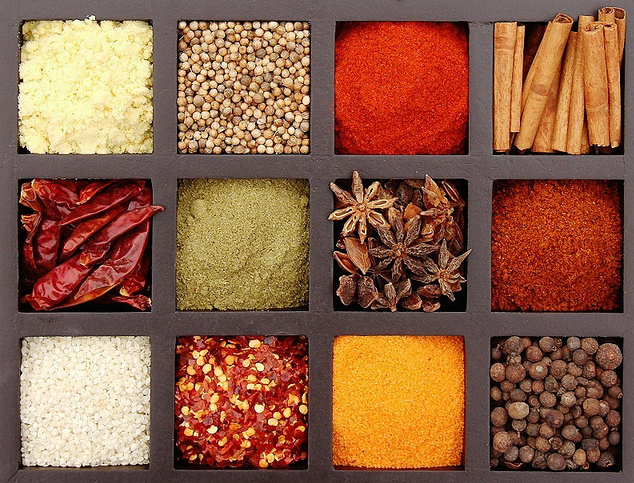FDA: There Are Gross Things (Like Bug Parts) In 12% Of Imported Spices
It’s never going to be a fun read when a report from the Food and Drug Administration includes the words “pathogen,” “filth” and “insects.” Unless your idea of fun includes learning that 12% of the spices we import for food purposes are contaminated.
“Nearly all of the insects found in spice samples were stored product pests, indicating inadequate packing or storage conditions,” the agency wrote in a draft report yesterday. “The presence of rodent hair without the root in spices generally is generally indicative of contamination by rodent feces.”
In addition to that delightful almost a 7% of spices inspected over a three-year period were contaminated with salmonella, with testing that revealed more than 80 different types of the food-borne bacteria. That’s about twice the rate of contamination found in other foods the FDA regulates.
Even if you think, “I don’t cook with any spices, seasoning is for people with fun palates,” products you eat could contain tainted spices. For example, black and red pepper imported from India, Vietnam and China sickened hundreds in 2009 and 2010 when it was used in salami.
All of this yuckiness has led to 749 shipments of spice turned away at the doors to the country over three years due to salmonella contamination, while another 238 shipments weren’t let in because they were just gross — the aforementioned bits of insects, excrement, hair and other things that you do not want to sprinkle lightly over your food.
The report identifies 14 spice centric outbreaks from 1973 to 2010 that brought in reports of 2,000 people sickened. That number could be low however, since you don’t usually dump a pound of cinnamon or chili powder into whatever you’re making, and we often cook food after seasoning it, the FDA notes.
McCormick & Co., the U.S.’ biggest seller of flavor products, responded to the FDA’s warnings with a statement on its website to reassure consumers of the quality of its spices and herbs:
“Whether they’re grown in the United States or other parts of the world, McCormick exercises the same high level of quality control throughout our supply chain — including several million ingredient analyses each year and a natural steam pasteurization process,” company said on its website.
Anyone else wondering whether crushed up insect parts are the real secret ingredients in Grandma Bubbub’s chili?
Risk Profile: Pathogen and Filth in Spices [FDA.gov]
Want more consumer news? Visit our parent organization, Consumer Reports, for the latest on scams, recalls, and other consumer issues.


